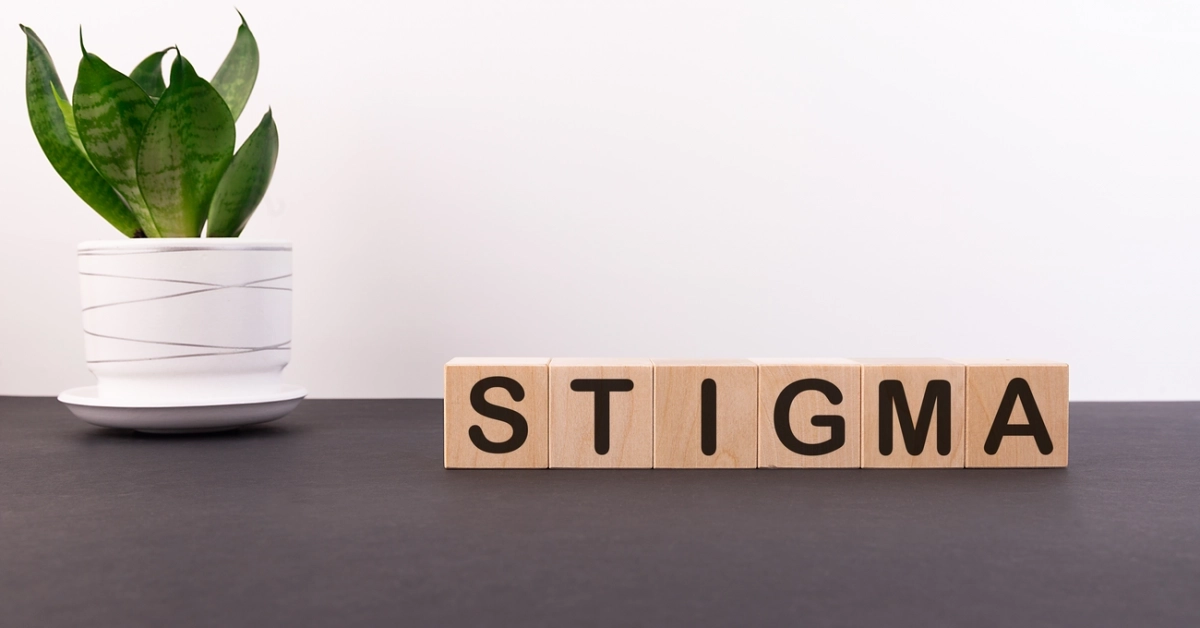According to a survey conducted by Mental Health America, over 57% of Americans who suffer from mental health disorders are believed to not be seeking treatment for those disorders. Of those Americans, a little over 22% reported facing barriers that deterred them from seeking treatment. These potential barriers could include a myriad of obstacles like:
- Limited health coverage or no healthcare coverage
- Staffing shortages in their local behavioral health workforce
- Lack of local behavioral health services altogether
- A disconnect between primary care and behavioral care services
- Unaffordable costs for behavioral care services
- Social stigmas discouraging them from seeking treatment
Social stigmas. It’s a more invisible problem in behavioral healthcare than all of the above bullet points on behavioral healthcare problems, but that doesn’t make it any less prevalent and damaging a problem. One 2017 study published by the European Archives Of Psychiatry found that self-stigma was overwhelmingly present in patients suffering from negative behavioral health outcomes.
Unfortunately, even with great social progress and positive strides being gradually made over the past several decades, mental health stigma is not a societal problem that’s had its prevalence wane any less over time. According to a study by the American Psychological Association, many harmful, perpetuating, and stigmatizing attitudes or beliefs toward mental health are still alive and well, unfair, prejudicial sentiments like:
- 68% of Americans not wanting a person with mental illness to marry into their family, and 58% not wanting mentally ill people in their workplace
- Americans being TWICE as afraid as they were in 1950 of mentally ill people becoming violent, despite mentally ill people facing a 2.5 times greater risk of becoming victims of violence
- People feeling undue societal pressure to hide their mental disorders out of fear of ostracization, judgment, shame, or discrimination
Despite there being around 76 million (or nearly one in four) Americans believed to be living with a diagnosable mental health condition, many of these people far too often have their mental health needs neglected, maligned, marginalized, if not outright ignored by society.
Mental health stigma puts people who are already in vulnerable, precarious, and alienating positions down into even more precarious, vulnerable, and alienating positions. It poses an all too prevalent societal harm that prevents far too many people from seeking the help they deserve. Learn more about the roots of this problem, and learn more about how they can be remedied.
What Is Mental Health Stigma?
Mental health stigma refers to negative judgemental biases one may have towards people who live with mental illnesses. The American Psychiatric Association classifies different forms of mental health stigmas under three different subcategories:
- Public Stigma: Negative discriminatory attitudes that some people may harbor about mental illness.
- Self Stigma: Negative, self-loathing attitudes one may have internalized against their own condition.
- Institutional Stigma: Systemically neglectful factors and perpetuated prejudices that limit and marginalize the lives of individuals for their mental health conditions.
Consciously or unconsciously, these stigmas can be promulgated and perpetuated and lead to a persistent, cascading series of long-term issues down the line. Invalidating the patient’s pain only does more harm than good toward their overall wellbeing in the grand scheme of things. Not only that, it only serves to potentially worsen and exacerbate a patient’s symptoms, be they things like anxiety, depression, PTSD, or worse yet, suicidal ideation.
Where Does Mental Health Stigma Come From? When Did Mental Health Stigma Begin?
The nonprofit Unite For Sight has traced mental health stigmatization back to the very early history of human civilization, when mental conditions were often regarded as the work of supernatural punishment and possession. The use of psychiatric interventions to counteract this stigmatization, however, also has a very early history.
The earliest roots of psychiatry can be traced back to the 5th century BC, with medical pioneers like Hippocrates being among the first to utilize a holistic, multi-faceted approach to treating mental health conditions. Rather than demonize or stoke fears in his patients with superstitions, Hippocrates was an innovator who focused on treating their mental health conditions by changing environmental conditions, lifestyles, and incorporating the use of medication.
Unfortunately, even with pioneers like Hippocrates being so brilliantly ahead of their time, extremely stigmatizing, detrimental, and harmful beliefs about mental health have continued to promulgate in society for centuries and centuries, all the way to this day.
Is Mental Health Stigma Decreasing? How Mental Health Stigma Has Changed
There are definitely sore spots where mental health stigmatization and prejudice haven’t gotten better. As we mentioned in the beginning, mental health stigmatization issues as far as people’s negative perceptions of the mentally ill becoming violent have sadly worsened. But while there is still plenty of room for improvement, plenty of remarkable improvements in societal perceptions have been made. For instance:
Mental health diagnosis and treatment reach had increased substantially at colleges over the decade from 2007 to 2017, according to the American Psychiatric Association. This indicates that students may be feeling less pressured by mental health stigmas, and hopefully, that trend’s continued in the few years since that report.
The American Psychological Association found remarkably positive and non-judgemental attitudes toward mental health, with one APA poll estimating that 87% of American adults agree that having a mental health condition is nothing to be ashamed of, a marked improvement from the aforementioned stigmas they published a decade earlier.
That same APA report determined that 86% of Americans agree that people with mental health disorders are capable of getting better.
According to a 2020 survey of multiple Midwestern communities covered by local news outlets like Minnesota’s Star Tribune, mental health stigma overall has significantly decreased among younger generations of Americans.
The kids are alright, but stigma in mental healthcare is not. No one deserves to have their well-being neglected, and especially not from the people who are supposed to care for their well-being the most. How can this stigma be ameliorated?
How Can Mental Health Stigma Be Reduced?
Here are some tips that we would recommend for reducing mental health stigma, whether it’s a persistent problem in your own life, or the lives of other people you care about:
- Don’t be afraid to open up: We all need extra help with improving certain areas of our lives from time to time, and mental health is no different. Opening up about your problems can help you offload some of that emotional burden, and may encourage others to be open about their experiences with similar struggles.
- Don’t become your own worst enemy: Many behavioral health professionals like to compare depression to anger being turned inward, and self-stigmatizing attitudes can be thought of in a similar way. Almost nothing productive can come out of repeatedly berating or beating yourself up. If you’re struggling with maladaptive thought patterns and self-stigmatizing, then you may want to consult a professional who specializes in cognitive behavioral therapy treatment.
- Empower yourself and the people around you: Not all stigma is rooted in malice, or even conscious hatred toward the mentally ill, but sometimes in misguided ignorance based on fear or a lack of education. Be open to educating yourself on mental health, educating others, and practice having as much internal and external compassion as you possibly can. Furthermore, don’t minimize and invalidate mental health struggles – they can make just as crucial a difference in a person’s well-being as physical health.
- Don’t be afraid to ask for help: Even if no therapists live nearby you, you may be able to find an online teletherapist who can support you through online therapy services like Sesame Care, Cerebral, Talkspace, or Brightside. We’re proud to help you access discount affiliate links for all of the aforementioned counseling services.
We hope that this article was helpful and interesting to you, and any of the aforementioned resources are useful in your search for affordable, non-judgemental, and non-stigmatizing behavioral healthcare.


